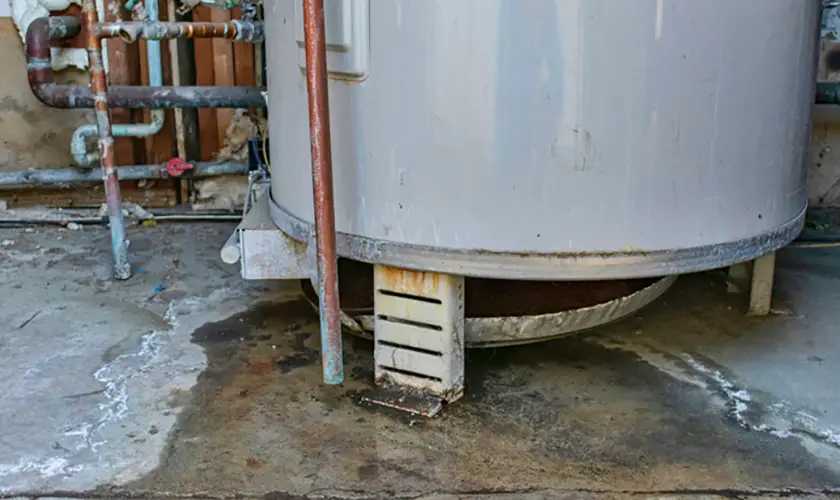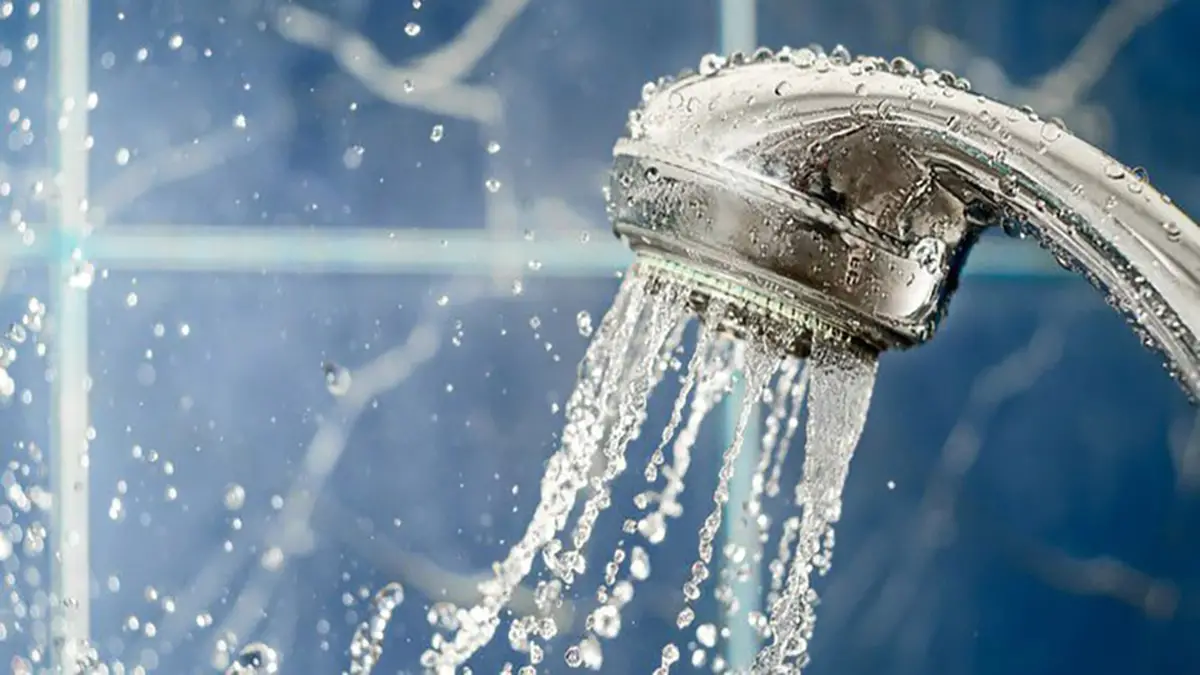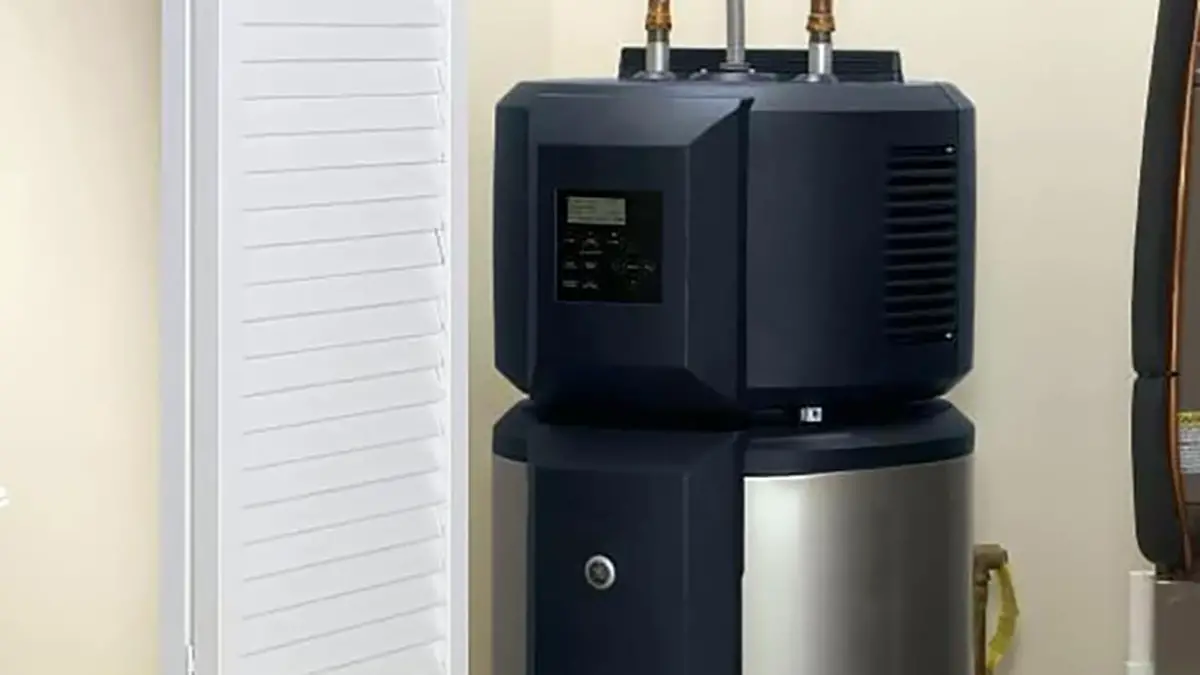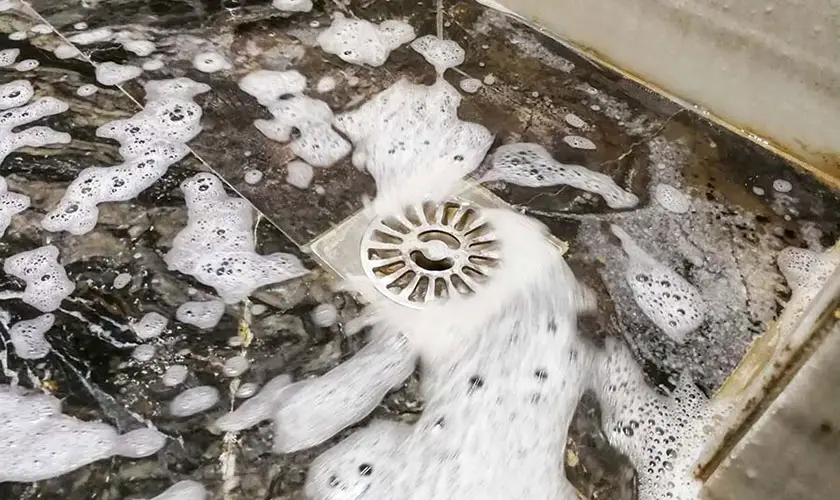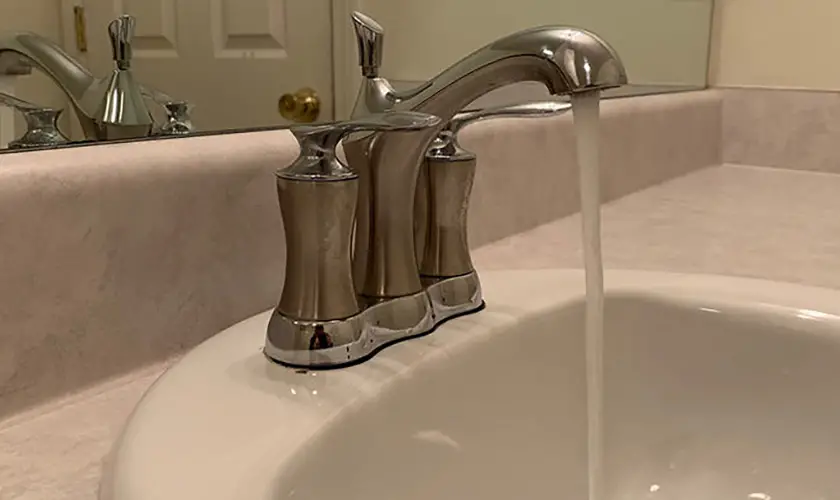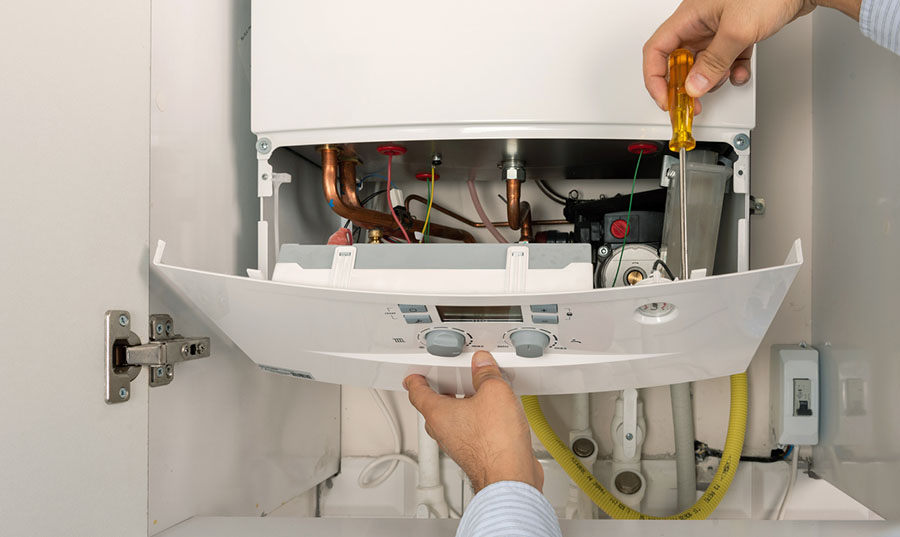
A water heater is a simple unit with an intricate installation process. With so many components that need to be placed precisely for your safety and convenience, installing a water heater should not be a rushed process.
It takes approximately 3 hours for a certified plumber to install a water heater under ideal circumstances. The whole process of delivery and installation shouldn’t take more than a day. However, if unforeseen circumstances arise, getting your water heater installed and running may take longer.
This article will look at how long it takes to install gas, electric, tank, and tankless water heaters and which one is best.
How Long Does It Take To Install A Water Heater?
The basic installation process of a water heater should typically last between 2 and 3 hours when a licensed plumber does it. There are three basic steps, each taking approximately 45 to 60 minutes.
1. Remove the Exisiting Water Heater (60 Minutes)
The process of removing the old water heater should take about 45 minutes because it involves several critical steps that ensure your safety and the safety of the person removing the unit.
Begin by turning the water heater off. And then turn off the electric supply or the main gas supply valve depending on the power source for the unit.
If it is gas, the next step is breaking the gas line at the union. The union is a piece of detachable fitting equipment that connects two pipes. You can remove it without damaging the pipes it holds together, and it offers effortless assembly and disassembly where needed.
After removing the union, it is time to disconnect the gas.
Now run the hot water out of the faucets until the water coming out is cold. Once you are sure the water is out of the heating tank, turn off the cold water supply.
Open the drain valve, and drain any remaining water in the heater’s tank.
Carefully begin the disconnection process by disconnecting the temperature and pressure (T&P) relief valve discharge pipe. Next, detach the vent pipe. And finally, disconnect the water pipes.
You have to cut the water pipes to disconnect them. So, make sure to have a plan before removing the old unit and ensure you cut the water pipes to a length that will still accommodate the new heater.
Of course, if you do not have an old water heater to remove, you shave off 45 minutes from the process.
2. Position the New Water Heater (30 to 45 Minutes)
Place the new water heater in the right position. That may sound easy to do, but maneuvering the unit into the correct position to accommodate water pipes and other structural components can be time-consuming.
There are regulations to adhere to when placing the water heater in your space. These are per local building codes, which you cannot overlook for your own safety.
Also, the heater’s location depends on the type of water heater that you have. The placement of a gas heater differs from that of an electric one or a tankless one.
Allow the plumber to find and advise the best place for your water heater, especially if you are changing from one type of heater to another.
3. Hook Up the New Water Heater (60 Minutes)
Installing the new unit is perhaps the longest part of the process. You must install the water heater to its power and water sources in the safest way possible.
There are some slight differences when installing a gas unit versus installing an electric unit. If it is a gas unit, the installation may take longer than for an electric unit.
Begin by ensuring the drain faucet is on the front. Connect the water pipes into the unit in their corresponding slots. Next, connect the T&P valve to the unit. Make sure the valve is rated for the water heater you have. Finally, connect the power and water sources, one at a time.
The plumber will test the heater to see how it works before declaring the installation complete.
Many moving parts may require installing components that are not already available on your structure during this process. That could cost you more time and money. But it is part of the installation process.
For example, the electric cable may not fall short of reaching your new unit because of changes in placement. You have to buy additional cable to solve the problem.
How Long Does It Take To Install A Gas Water Heater?
Remember earlier we mentioned that installing a gas heater is more time-consuming? You have to connect to the gas supply, which can be a tedious and complex process.
You cannot afford to get it wrong with the gas supply connections because that would be catastrophic. Also, you have to ensure the placement is correct to allow you to turn the gas on and off when operating it.
If you switch from an electric heater to a gas heater, you have to run the gas lines through a new location and create additional vents for combustion and aeration. That means more work of drilling and cutting into your walls. It may take closer to 2 hours or more to hook up a gas water heater.
Which Is Better Tankless or Tank Water Heater?
The tankless water heater has a high initial cost of installation. However, these heaters are more energy-efficient, especially for homes or establishments that use a lot of water. Also, they can be discreetly installed so that no one can even tell the unit is in place.
On the other hand, it is much cheaper to acquire a tank water heater. Also, the operation is more straightforward, and so are the repairs when the unit is not functioning correctly. When you compare the two, the tankless water heater offers numerous advantages over the tank units.
You will save more with the tankless heater, and they last longer for 20 to 30 years. That is significantly more service life than the tank units, which only offer you 10 to 12 years.
Also, tankless units are small and take up very little room compared to tank units which need a designated space to stand.
Finally, there is little to no wait time for the hot water with an on-demand heater (tankless water heater). You may have to wait as little as 15 to 25 seconds for the hot water to come through the faucet. The advantages of the tankless unit are more than those of the tankless heater, which makes it a better option.
Is a Gas or Electric Water Heater Better?
Let’s quickly compare electric and gas water heaters to help you decide which one might be better for your home and needs.
1. Size
Both units come in a range of sizes from 20 to 100 gallons. But the electric heater can also be a point of use heater, which is not typically the case for gas heaters.
It can come in a much smaller size as a point-of-use heater, providing water for only a specific section of the house like the kitchen or bathroom. An electric point-of-use heater can be available in capacities as little as 2.5, 6, 10, or 15 gallons only.
Which Is Better?
The electric water heater wins here because of its versatility and wide selection of unit sizes available.
2. Energy Consumption
Gas units typically cost much less to run because they use natural gas, which is lower in cost than electricity. However, they use more energy to run.
On the other hand, electric water heaters utilize all the energy they draw in to help heat the water. That means there is minimal to no waste at all.
There are energy-efficient gas heaters that feature the Energy Star label from the US Department of Energy or the US Environmental Protection Agency.
They do not lose as much heat or use as much energy as a regular gas heater. Unfortunately, electric tank heaters do not come in a high-energy efficient version.
Which Is Better?
Unless you use the energy-efficient gas model, it is best to stick to the electric unit.
3. Cost Of Running
Electric water heaters cost more to run because they rely on electricity which is more expensive than natural gas.
Acquiring a water heater will cost you less because the appliance features very few parts, so it costs very little to construct.
A gas heater will pay for itself in the long run by saving you energy costs, although the initial cost of acquiring and installing a unit is high.
Which Is Better?
The gas heater comes out on top. It is cheaper to use as a long-term unit.
4. Safety
A gas unit always has a higher risk because of gas leaks. The gas line may develop a leak putting you and your family at risk.
Also, the fumes produced during the running of the unit can cause carbon monoxide poisoning, especially if the combustion vent is not well maintained.
Electric fires are a concern when it comes to electric water heaters. But they are extremely rare, and you do not have to worry about fumes with the electric unit.
Which Is Better?
The electric heater is safer and less risky.
5. Environmentally Friendly
Gas water heaters use more energy when operating, and they also release waste into the environment. The used gas fumes from the heater are released into the environment via the vents. Also, gas units tend to lose heat.
Electric heaters release very little (if anything) into the environment. They are clean and efficient.
Which Is Better?
The electrical heater beats the gas option because it has no emissions that affect the environment.
Electric Tankless Water Heater Vs. Gas Tankless Water Heater?
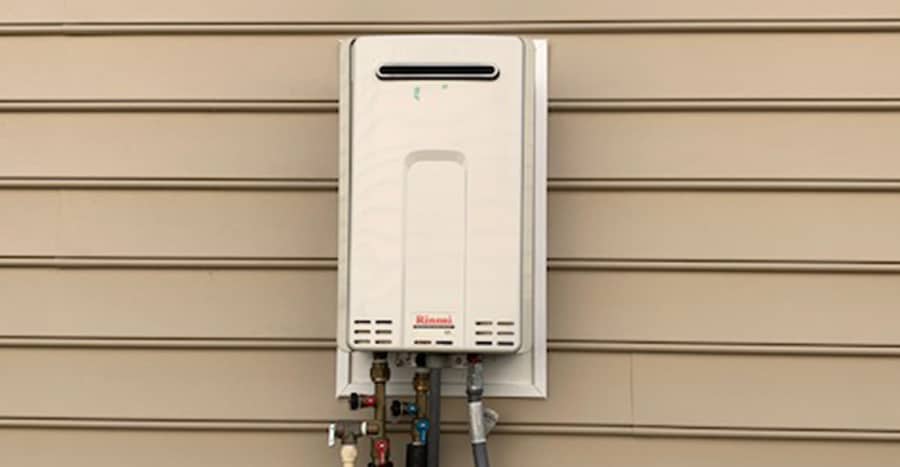
They both work without having to store water. The difference is that one heats the water using an electric element and the other using a gas burner.
However, a gas tankless water heater may still need electricity to power the panel and detect water flow. The unit will also require electricity to run the internal PC board, electronic thermostat, and other electrical components.
The low energy cost theory goes out the window if you go with a gas tankless water heater that still needs an electric hook up.
Also, gas tankless water heaters are significantly more expensive to install compared to their electric counterparts.
Additionally, you have to modify the home to accommodate the gas tankless water heater. For example, the vents may not be compatible with a tankless gas unit.
And if you are using a non-condensing unit, you have to pay for a complex venting system to accommodate the tankless gas unit.
Electric tankless units, on the other hand, are very straightforward in installation and operation. Besides, they are smaller, and no vents and ventilation are required. They work in the existing framework of your home.
However, if you need to upgrade the power in your home, you may end up spending a bit more.
Ultimately, it is cheaper and more efficient to settle for an electric tankless water heater over a gas tankless water heater.
What Water Heaters Do Plumbers Recommend?
That depends on which source of power is closest to you. If you have natural gas lines nearby, a gas unit will make more sense for your home.
If not, you may have to settle for an electric unit.
Also, you have to consider your budget. The cost of a running and electric unit is high, so it may not be the ideal option if you are cost-conscious. However, that may mean spending more to acquire and install a gas water heater but save more in the long run because of the low cost of operating the unit.
Finally, you must consider your hot water use daily.
If you use a lot of water, you need an energy-efficient and fast unit like the electric water heater. A gas unit may be too slow and inconvenient for establishments that require a lot of water to run critical processes.
Conclusion
Overall it may take you longer to install a gas water heater than an electric water heater, regardless of whether it is a tank or tankless unit.


